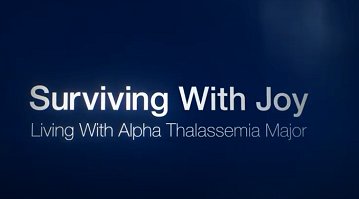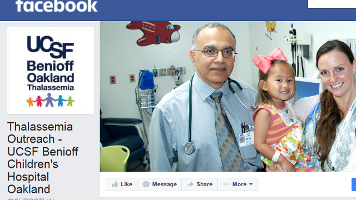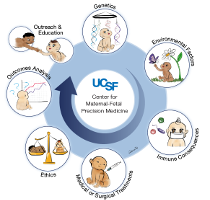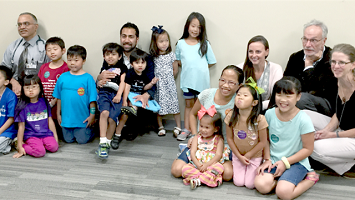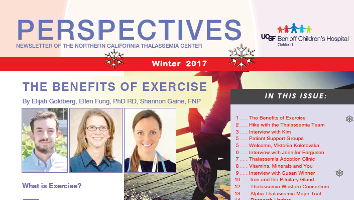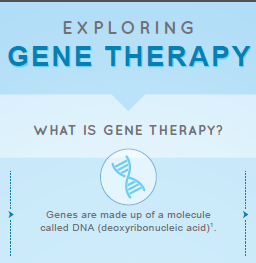
Thalassemia Research Studies
By Lisa Du, Study Coordinator II
By Lisa Du, Study Coordinator II
| Title | Abstract |
|---|---|
| Natural History of Iron Burden and Risk of Organ Injury as Assessed and Predicted by Non-Invasive Measurement Techniques | Longitudinal assessment of whole body iron burden is essential for managing chelation and phlebotomy therapies and may be effective in predicting risk of organ injury. Biomagnetic susceptibility measurement of liver iron concentration using SQUID technology. We will assess iron burden by biosusceptometry and serum ferritin at CHRCO and evaluate the clinical evidence of cardiac, hepatic, endocrine and orthopedic dysfuntion, and relate it to total iron burden as assessed by biosusceptometry and other non-invasive techniques. |
| Evaluate the Efficacy and Safety of RBCs Derived from Mirasol-treated Whole Blood Compared with Conventional RBCs in Patients Requiring Chronic Transfusion Support (PRAISE Trial) | Thalassemia is the most transfused syndrome worldwide. The risk of transmitting pathogens is reduced by pre-screening of blood donors and testing of the blood. The Mirasol System offers a means to make transfusions significantly safer by targeting unscreened and undetected pathogens. This is a prospective, multi-center, randomized, crossover trial to evaluate the clinical effectiveness of RBCs derived from Mirasol-treated WB versus conventional RBCs in transfusion dependent thalassemia patients. |
| Towards the Development of a Noninvasive Prenatal Testing for Beta-Hemaglobinopathies | The goal of this project is to show proof of concept for a non-invasive prenatal test (NIPT) for beta-hemoglobinopathies utilizing a novel DNA probe capture assay and next generation sequencing (NGS). Our preliminary data have shown that our probe capture/NGS system can overcome the challenges implicit in the analysis of cfFDNA for NIPT: low DNA amount. The final proof of principle for this NIPT assay requires blood samples from pregnant couples, confirmed to have mutations in the beta-globin gene. For this work we are collaborating with our Indian colleagues at the Postgraduate Institute of Medical Education and Research, Chandigarh. |
| A Phase 3 Single Arm Study Evaluating the Efficacy and Safety of Gene Therapy in Subjects with Transfusion-dependent -Thalassemia, who do not have 0/0 Genotype, by Transplantation of Autologous CD34+ Stem Cells Transduced Ex Vivo with a Lentiviral A-T87Q-Globin Vector in Subjects under 50 Years of Age | This gene therapy study is a single-arm, multi-site, single dose, phase 3 study to evaluate the safety and efficacy of autologous hematopoietic stem cell transplantation (HSCT) using LentiGlobin® BB305 Drug Product in patients with ß-thalassemia major. Patients must be less than 50 years of age with transfusion dependent ß-thalassemia who do not have the ß0/ß0 mutation and are clinically stable to undergo transplantation but who lack a suitable matched family member donor. |
| A Phase 3 Single Arm Study Evaluating the Efficacy and Safety of Gene Therapy in Subjects with Transfusion-dependent B-Thalassemia, who have a 0/00 Genotype, by Transplantation of Autologous CD34+ Stem Cells Transduced Ex Vivo with a Lentiviral Globin Vector in Subjects 12 - 50 Years of Age | This gene therapy study is a single-arm, multi-site, single dose, phase 3 study to evaluate the safety and efficacy of autologous hematopoietic stem cell transplantation (HSCT) using LentiGlobin® BB305 Drug Product in patients with transfusion dependent ß-thalassemia. Patients must be at least 12 years of age with the ß0/ß0 mutation and be clinically stable to undergo transplantation but who lack a suitable matched family member donor. |
| A Multi-center, Randomized, Open-Label, Parallel-Group Study with LJPC-401 for the Treatment of Myocardial Iron Overload in Adult Patients with Transfusion-Dependent Beta Thalassemia | This is a study of hepcidin (LJPC-401) in adults with transfusion-dependent beta-thalassemia and cardiac iron overload. This is an open-label study in which half of the participants will receive weekly subcutaneous injections of hepcidin in addition to their regular treatment for 52 weeks. The rest of the participants will receive regular standard of care for the first 26 weeks, and then will receive weekly hepcidin injections for the next 26 weeks in addition to their regular treatment. This study is designed to enroll 100 patients across multiple sites. BCHO plans to enroll up to 5 patients. Hepcidin is a substance produced by the liver to control the iron levels in plasma. Changing the amount of hepcidin allows control of iron released into the plasma from body stores and absorption of iron from food. As such, synthetic hepcidin may help in controlling iron excess. The aim of this protocol is to evaluate the effect of treatment with hepcidin on iron overload in the heart muscle. The study will also evaluate if the use of hepcidin safe and tolerable. |
| A Phase 2, Open-Label, Multicenter Study to Determine the Efficacy, Safety, Pharmacokinetic, and Pharmacodynamics of AG-348 in Adult Subjects with Non-Transfusion-Dependent Thalassemia (Pending) | This is an open-label multi-center study in patients with non-transfusion-dependent thalassemia, including patient with beta thalassemia and hemoglobin H constant spring disease. Approximately 17 patients will be enrolled at 3 sites in the United States. BCHO will enroll approximately 8 patients. Thalassemia is an inherited blood disease where the body cannot make enough hemoglobin. This produces anemia that can be severe enough to require blood transfusions for survival. Many patients do not require regular transfusions, but are at risk from the effects of severe anemia. The treatment options for such patients are very limited. In this study, we are evaluating whether the study drug, AG-348, which may improve the energy metabolism of red blood cells, will lead to improved overall fitness and survival of blood cells. The study will include patients with either beta thalassemia intermedia, or hemoglobin H Constant Spring disease. The primary objectives of this trial are to measure the improvement in hemoglobin level in response to treatment with AG-348. Secondary objectives are to evaluate the safety and pharmacokinetics or AG-348 and to determine the effect of the AG-348 on markers of hemolysis, erythropoeitic activity and iron metabolism. |
| A Phase 2 Study of PTG-300 in Non-Transfusion Dependent (NTD) and Transfusion-Dependent (TD) ß- thalassemia Subjects with Chronic Anemia (Pending) | This is an open-label study in which participants will receive weekly subcutaneous injections of PTG-300 in addition to their regular standard of care for 16 weeks. The study participants will receive the study drug at different dosage with the potential to titrate up in accordance with safety and efficacy evaluation. This study is designed to enroll 84 patients across multiple sites. BCHO plans to enroll up to 2 patients. Hepcidin is a substance produced by the liver to control the iron levels in plasma. Changing the amount of hepcidin with the hepcidin mimic allows control of iron released into the plasma from body stores and absorption of iron from food. Ineffective erythropoiesis is the hallmark of ß- thalassemia that elicits a number of compensatory mechanisms resulting in erythroid marrow expansion, extramedullary hematopoiesis, splenomegaly, and increased gastrointestinal iron absorption. As such, a synthetic hepcidin mimic may result in iron redistribution in ß-thalassemia subjects with potentially beneficial effects on erythropoiesis and consequently improvements in chronic anemia. |
Video: Gene Therapy -- The time is now -- Nick Leschly, BluebirdBio
Updated 3/1/2019

